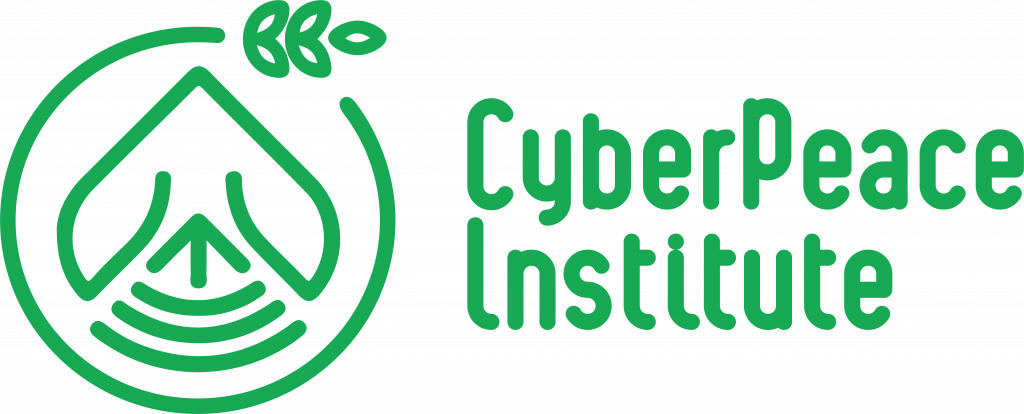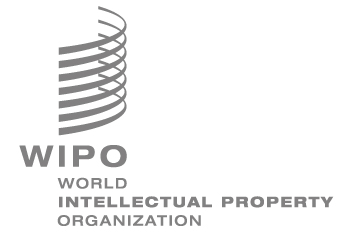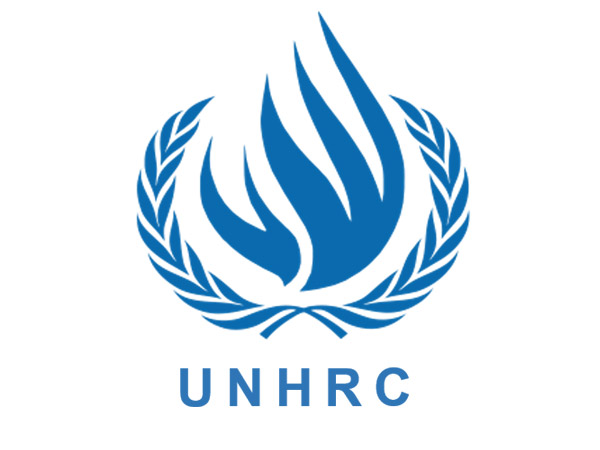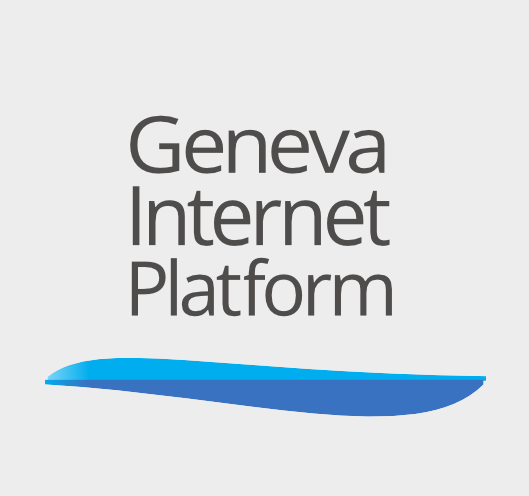Acronym: CyberPeace Institute
Established: 2019
Address: Campus Biotech Innovation Park, 15 avenue de Sécheron, 1202 Geneva, Switzerland
Website: https://cyberpeaceinstitute.org/
Stakeholder group: NGOs and associations
The CyberPeace Institute is an independent and neutral non-governmental organisation (NGO) that strives to reduce the frequency, impact, and scale of cyberattacks, to hold actors accountable for the harm they cause, and to assist vulnerable communities.
The institute is a Geneva-based NGO, also working in close collaboration with relevant partners to reduce the harm from cyberattacks on people’s lives worldwide and provide assistance. By analysing cyberattacks, we expose their societal impact and how international laws and norms are being violated, and advance responsible behaviour to enforce cyberpeace.
At the heart of the Institute’s efforts is the recognition that cyberspace is about people. We support providers of essential services to the most vulnerable members of society, ultimately benefitting us all, like NGOs and the healthcare sector. Attacking them can have a devastating impact on beneficiaries and patients, putting their rights and even lives at risk.
To deliver on this mission, we rely on donations and the generosity of individuals, foundations, companies, and other supporters. This support enables us to assist and support vulnerable communities, including NGOs, to enhance their resilience to cyberattacks.
The Institute also provides evidence-based knowledge and fosters awareness of the impact of cyberattacks on people, to give a voice to and empower victims to highlight the harm and impact of cyberattacks. We remind state and non-state actors of the international laws and norms governing responsible behaviour in cyberspace, and advance the rule of law to reduce harm and ensure the respect of the rights of people.
Digital activities
Created in 2019, the Institute assesses the impact of cyberattacks from a human perspective, focusing on the rights of people. We ground our analysis on evidence and the impact on human well-being, telling the story of people, linking it with the technical reality of cyberattacks, and assessing it against the violation of laws. The Institute advocates for an evidence-based, human-centric approach to the analysis of cyberattacks as essential to the process of redress, repair, and/or justice for victims. It works collaboratively in our research, analysis, assistance, mobilisation, and advocacy. We engage with vulnerable communities to understand their needs for cybersecurity support and provide free and trusted cybersecurity assistance to vulnerable communities.
The CyberPeace Institute
- assists NGOs and other vulnerable communities to prepare for and recover from cyberattacks.
- investigates cyberattacks targeting vulnerable communities, analysing these attacks to provide alerts and support and for accountability.
- advocates to advance the rule of law and respect for the rights of people.
- anticipates threats to people associated with emerging and disruptive technologies.
- Examples of operational activities
- Assisting humanitarian and other NGOs with free and trusted cybersecurity support.
- Analysing cyberattacks and highlighting their impact on people and how they violate the rule of law.
- Documenting violations of international laws and norms and advocating for strengthened legal protection in cyberspace.
- Offering expertise and support to states and civil society in relation to responsible behaviour in cyberspace.
- Foreseeing and navigating future trends and threats in cyberspace.
Digital policy issues
Critical infrastructure
Cyberattacks against critical infrastructure have been on the rise, from attacks against hospitals and vaccine supply chains to attacks on the energy sector. When such disruptions occur, access to basic services is at risk. It is vital that there is an increase in the capacity and ability to improve resilience to cyberthreats in critical sectors, such as healthcare. The CyberPeace Institute urges stakeholders in diplomatic, policy, operational, and technical areas to increase their capacity and resilience to cyberthreats.
The Institute advocates for capacity building aimed at enabling states to identify and protect national critical infrastructure and to cooperatively safeguard its operation. This includes capacity building, implementation of norms of responsible behaviour, and confidence building measures. In strengthening efforts to protect critical infrastructure, the Institute calls for the sharing of lessons learned between countries to assist those with less capacity and fewer capabilities.
NGOs in civilian-critical sectors, for example water, food, healthcare, energy, finance, and information, need support and expertise to help them strengthen their cybersecurity capabilities. While these NGOs provide critical services to communities and bridge areas not covered by public and private actors, they lack the resources to protect themselves from cybersecurity threats.
Examples of the Institute’s work in this regard:
- Calls to governments to take immediate and decisive action to stop all cyberattacks on hospitals and healthcare and medical research facilities, as well as on medical personnel and international public health organisations.
- Capacity building is essential for achieving cyber preparedness and resilience across sectors and fields, and activities focus on providing assistance and capacity building to NGOs that might lack technical expertise and resources.
- Publication of the strategic analysis report Playing with Lives: Cyberattacks on Healthcare are Attacks on People, and launch of the Cyber Incident Tracer (CIT) #Health platform that bridges the current information gap about cyberattacks on healthcare and their impact on people. This is a valuable source of information for evidence-led operational, policy, and legal decision-makers.
- Analysis and evaluation of cyberattacks and operations targeting critical infrastructure and civilian objects in the armed conflict between Ukraine and the Russian Federation through the publicly accessible Cyber Attacks in Times of Conflict Platform #Ukraine and a two-part video series to offer visual representation of key findings further developed in our quarterly analytical reports.
- An interactive platform named The CyberPeace Watch to expand the monitoring to other contexts including other situations of armed conflict and to the application of relevant laws and norms. This informs policy and legal processes and developments, the preparedness and protection of critical infrastructure, and cyber capacity building.
- Participation in the INFINITY project to transform the traditional idea of criminal investigation and analysis. INFINITY has received funding from the European Union’s Horizon 2020. Its concept is based around four core research and technical innovations that together, will provide a revolutionary approach and convert data into actionable intelligence.
- Participation in the UnderServed project, an EU- funded initiative to address the lack of adequate cybersecurity measures for vulnerable sectors, including humanitarian, development, and peace non-governmental organisations (NGO). The primary objective of the project is to establish a comprehensive platform for reporting and analysing cyber threats. This platform is tailor-made for NGOs vulnerable to cyberattacks, which often lack the resources to effectively mitigate such threats.
Network security
NGOs play a critical role in ensuring the delivery of critical services, such as the provision of healthcare, access to food, micro-loans, information, and the protection of human rights.
Malicious actors are already targeting NGOs in an effort to get ransoms and exfiltrate data. Often these NGOs do not have the budget, know-how, or time to effectively secure their infrastructures and develop a robust incident response to manage and overcome sophisticated attacks.
With this in mind, the Institute launched its CyberPeace Builders programme in 2021, a unique network of corporate volunteers providing free pre- and post-incident assistance to NGOs supporting vulnerable populations.
This initiative brings support to NGOs in critical sectors at a level that is unequalled in terms of staff, tools, and capabilities. It assists NGOs with cybersecurity whether they work locally or globally, and supports them in crisis-affected areas across the globe.
Capacity development
The Institute believes that meaningful change can occur when a diversity of perspectives, sectors, and industries work together. To address the complex challenges related to ensuring cyberpeace, it works with a wide range of actors at the global level including governments, the private sector, civil society, academia, philanthropies, policymaking institutions, and other organisations. The Institute contributes by providing evidence-led knowledge, emphasising the need to integrate a genuine human-centric approach in both technical and policy-related projects and processes, and by highlighting the civil society perspective to support and amplify existing initiatives.
Training
The CyberPeace Institute is providing comprehensive training for NGOs Boards and Staff, Foundations and Volunteers designed to empower organisations with vital tools for safeguarding their missions.
We recently launched a Cyber School, in partnership with Microsoft, to create a unique, free offer to
participate in an 8-week virtual course for everyone who is interested in taking their first step into a new career path.
Interdisciplinary approaches
To contribute to closing the accountability gap in cyberspace, the Institute seeks to advance the role of international law and norms.
It reminds state and non-state actors of the international law and norms governing responsible behaviour in cyberspace, and contributes to advancing the rule of law to reduce harm and ensure the respect of the rights of people.
Contribution to UN processes
- In 2021–2022, the Institute contributed to and commented on various UN-led processes (notably the United Nations Group of Governmental Experts on Advancing responsible state behaviour in cyberspace in the context of international security (UN GGE) and the Working Group (WG) on the use of mercenaries as a means of violating human rights and impeding the exercise of the rights of peoples to self-determination).
- Since its inception, the Institute has closely followed the work of the UN Open-Ended Working Group (UN OEWG) on developments in the field of information and telecommunications in the context of international security, advocating recognition of the healthcare sector as a critical infrastructure and raising concerns about the lack of commitment towards an actionable and genuine human-centric approach.
- In the Open-Ended Working Group on security of and in the use of information and communications technologies 2021–2025 (OEWG II), the Institute set out three key action areas and related recommendations, and is contributing its expertise in relation to the protection of humanitarian and development organisations from cyberattacks.
- – The Institute issued a Statement at the Ad Hoc Committee to Elaborate a Comprehensive International Convention on Countering the Use of Information and Communications Technologies for Criminal Purposes (Cybercrime Convention
- Moreover, the Institute sought to advance the Cyber Programme of Action (PoA) by offering recommendations concerning the range, organisation, and approaches for stakeholder participation.
- Also, the Institute welcomed the call for civil society organisations to contribute to the Global Digital Compact and provided a set of recommendations.
Participation in international initiatives: The Paris Call Working Groups
The Paris Call for Trust and Security in Cyberspace is a multistakeholder initiative launched by the French government at the Paris Peace Forum in November 2018. The Call itself sets out nine principles promoting and ensuring the security of cyberspace and the safer use of information and communications technology (ICT).
- To operationalise these principles, in November 2020 six working groups were created to work on various issues that relate to them. The Institute co-led WG5 with colleagues from Geopolitics in the Datasphere [Géopolitique de la Datasphère] and The Hague Centre for Strategic Studies (HCSS).
- The work of this group led to the Final Report published during the Paris Peace Forum 2021. It presents a methodology to facilitate understanding of how the implementation of normative, legal, operational, and technical measures, or the lack thereof, contribute to stability in cyberspace and ultimately to cyberpeace.
- The Institute contributed to WG3: Advancing the UN negotiations with a strong multistakeholder approach, leading to the publication of the final report on Multistakeholder Participation at the UN: The Need for Greater Inclusivity in the UN Dialogues on Cybersecurity.
- The Institute chaired the session “Unpacking the Cyber Mercenaries’ Phenomenon” at the 6th edition of the Paris Peace Forum.
At the World Economic Forum meeting in Davos, in May 2022, the CyberPeace Institute joined Access Now, the Office of the High Commissioner for Human Rights (OHCHR), Human Rights Watch (HRW), Amnesty International, the International Trade Union Confederation (ITUC), and Consumers International to call on decision-makers to take action and initiate a moratorium limiting the sale, transfer, and use of abusive spyware until people’s rights are safeguarded under international human rights law.
This is in addition to a call made in 2021, in which the Institute joined more than 100 civil society organisations calling for a global moratorium on the sale and transfer of surveillance technology until rigorous human rights safeguards are adopted to regulate such practices and guarantee that governments and non-state actors don’t abuse these capabilities.
EU Processes
At the Institute, we conduct an evaluation of best practices in implementing EU regulations, focusing on
their evolution and development to ensure effective execution. Simultaneously, we analyse EU mechanisms like the EU Cyber Diplomacy Toolbox, aimed at countering malicious cyber activities and bolstering resilience, while providing targeted observations and recommendations.
- We contributed to the Joint Letter of Experts on Cyber Resilience Act to shed light on the vulnerability disclosure requirements, which are believed to be counterproductive.
- We offered recommendations to the working group of the ITRE Committee (EU parliament).
- We led the workshop for the European Parliament’s Subcommittee on Security and Defence (SEDE) on the role of cyber in the Russian war against Ukraine: Its impact and the consequences for the future of armed conflict, which was then published as a working paper.
- We provided positions and recommendations on the EU AI Act (unpublished yet).
Digital technology plays an important role in conflict mediation and global peacebuilding. It can extend inclusion, allowing more women or people from marginalised groups to take part in or follow a mediation process. It can make mediation faster and more efficient and can allow mediators to draw on resources from around the world.
However, digital technology brings risks, too. It can increase polarisation, for example, and allow disinformation to spread to more people, more quickly. It can increase vulnerability to malicious actors, spying, and data breaches. These risks can undermine trust in the process.
Mediators work in low-trust, volatile contexts and don’t always have the knowledge to assess the risks posed by digital technology. A new online platform helps to raise awareness of those risks, as well as offering training on how to deal with them. The Digital Risk Management E-Learning Platform for Mediators was created in 2021 by the CyberPeace Institute, CMI – Martti Ahtisaari Peace Foundation, and the UN Department of Political and Peacebuilding Affairs (UNDPPA) Mediation Support Unit.
As part of the integration and engagement with the stakeholder ecosystem in Geneva, the Institute is a member of the Geneva Chamber of Commerce, Industry and Services (CCIG). Various academic collaborations are ongoing through participation in conferences, workshops, and lectures,
namely with the Ecole Polytechnique Fédérale de Lausanne Centre for digital trust EPFL (C4DT), the University of Geneva (UNIGE), and the Graduate Institute (IHEID). In 2020, the Institute formed a strategic partnership with the SwissTrust Valley for Digital Transformation and Cybersecurity.
The Institute and its staff have received several awards for innovative and continuous efforts promoting cyberpeace including the 2020 Geneva Centre for Security Policy (GCSP), second prize for Innovation in Global Security, and the Prix de l’Economie in 2021 from CCIG.











Social media channels
The Institute maintains a website providing alerts, blogs, articles, and publications on key issues related to its mission for cyberpeace, and shares video materials and discussion recordings on YouTube channel.
The latest news and developments are shared via:
Facebook @CyberpeaceInstitute
Instagram @cyberpeaceinst
LinkedIn @cyberpeace-institute
X @CyberpeaceInst
Sign up for the monthly newsletter to receive updates about what’s happening at the Institute, as well as news about cyberpeace.